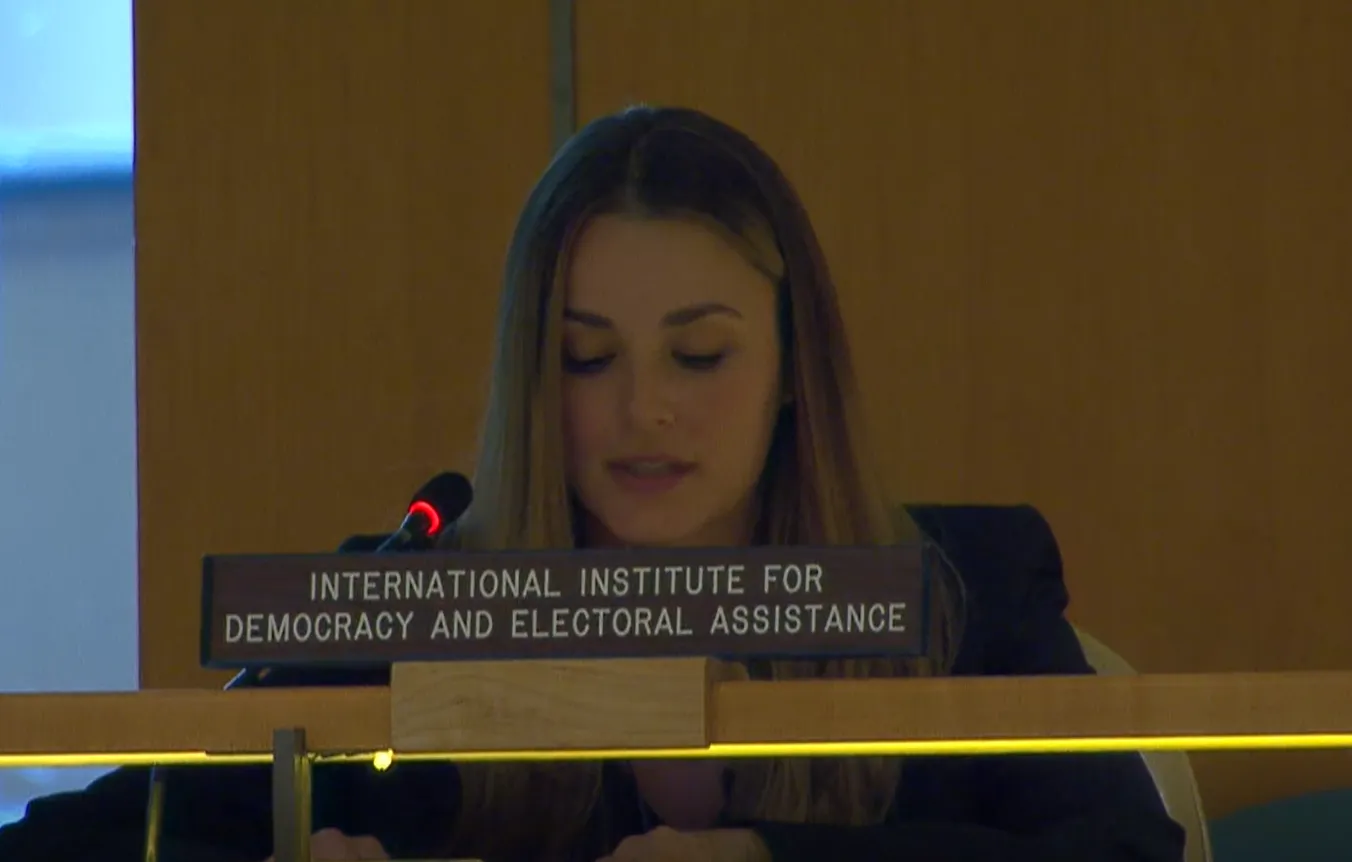International IDEA's statement at the Briefing by UN Special Envoy on Myanmar

“Briefing by UN Special Envoy on Myanmar”
16 March 2023
New York, United Nations Headquarters
Statement by
Kevin Casas-Zamora
Secretary-General
International Institute for Democracy and Electoral Assistance (IDEA)
Excellencies,
International IDEA fully supports the efforts of the Special Envoy and her office in furthering steps to a solution of the crisis in Myanmar that was triggered by the military’s unconstitutional coup in February 2021, and that has been exacerbated by the military junta’s persistent illegitimate claims to rule the country by force.
UN Security Council Resolution 2669 demanded among other things the immediate and unconditional release of President Win Myint and State Counsellor Aung San Suu Kyi from arbitrary detention. They retain their offices and are recognized by the UN as the official highest-level representatives of Myanmar. Releasing them is a binding obligation of international law that the military must fulfil.
The plight of the Rohingya has been well documented and continues to put to shame the global community. No men and women, boys and girls, should have to live in conditions of protracted displacement, without perspectives, without a future. If “no one left behind” continues to be our rallying cry for the sustainable development goals, the Rohingya represent one of the most vivid reminders that the commitments we make in these halls are only worth anything if these promises are actually implemented. And for years, the Rohingya have been driven into desperation by one broken promise after another.
The United Nations and human rights organizations have highlighted the dramatically deteriorating human rights situation of the Rohingya community remaining in Myanmar, where they are subjected to crimes against humanity by the military forces, increased restrictions on freedom of movement by the illegal State Administration Council (SAC), and lack of access to adequate food, health care, livelihoods, and education. According to recent reports from Human Rights Watch and Amnesty International, the current situation also prevents the voluntary repatriation to Myanmar of Rohingya refugees in Bangladesh.
The only future of the Rohingya in line with the values and principles of the United Nations is their full return and reintegration to their homes. This is outlined in the commitments made by Myanmar’s legitimate interim institutions based on the Federal Democracy Charter. These commitments should be welcomed by the international community but also require support, in particular by strengthening efforts of building a genuine democratic federal system in Myanmar.
It is encouraging that Member States are increasingly recognizing the need to build a stable democratic federal union in Myanmar. As we already stated last year, it is clear that the suffering of the Rohingya community will only end with the restoration of genuine democracy and peace based on justice in Myanmar. Lasting peace and stability in Myanmar will only return once fully representative and accountable institutions are restored, and once the Rohingya can fully participate in public affairs at the local, state and federal level in dignity.
Two years after the coup, the National Unity Government’s (NUG) efforts in translating its commitments to the Rohingya into action in consultation with the Rohingya community are worth noting. The NUG has recognized that this requires a coordinated approach involving multiple Ministries within the NUG as well as genuine consultation with the Rohingya community. We welcome the NUG plans to create an institutional focal point for the Rohingya with a mandate to coordinate its policy in this regard. This would be another important step to ensure that future institutions and government on all levels effectively consider Rohingya perspectives and that legislative reform in relation to citizenship guarantees and protects their rights.
The Rohingya community itself must be supported in their efforts to create institutional structures – such as the emerging Rohingya Consultative Committee – while ensuring that they are indeed inclusive and representative and build capacities to enable them to participate in the interim institutions currently discussing Myanmar’s future constitution and federal system. These new institutions could take a leading role in defining and voicing what the Rohingya community expects and requires from Myanmar’s future government institutions in relation to reintegration.
Similarly, governance capacities in Rakhine State must be developed and its diverse communities prepared for the future reintegration of voluntary repatriated Rohingya to ensure stability and foster social cohesion. This requires public awareness raising and education to foster a culture of tolerance, non-discrimination, and human rights protection of all Myanmar citizens, regardless of their belonging to or identification with a particular group.
The situation of the Rohingya demonstrates clearly the intrinsic linkages between democracy, human rights, non-discrimination, peace and development. Comprehensive and long-term responses are needed. The military junta has repeatedly tried to instrumentalize anti-Rohingya religious and racist prejudice. With every month of prolonging the junta’s hold on power, the chances of the Rohingya’s dignified return and reintegration slip further away. Restoring democracy alone would open a possibility, but by no means a guarantee for that. Any credible democratic election must ensure the full participation of Rohingya citizens.
International IDEA will continue to work with both the interim institutions, such as NUG, CRPH and the NUCC and its member organisations, as well as with the Rohingya themselves, to share comparative knowledge and promote the values of inclusion and diversity in Myanmar.
Thank you.